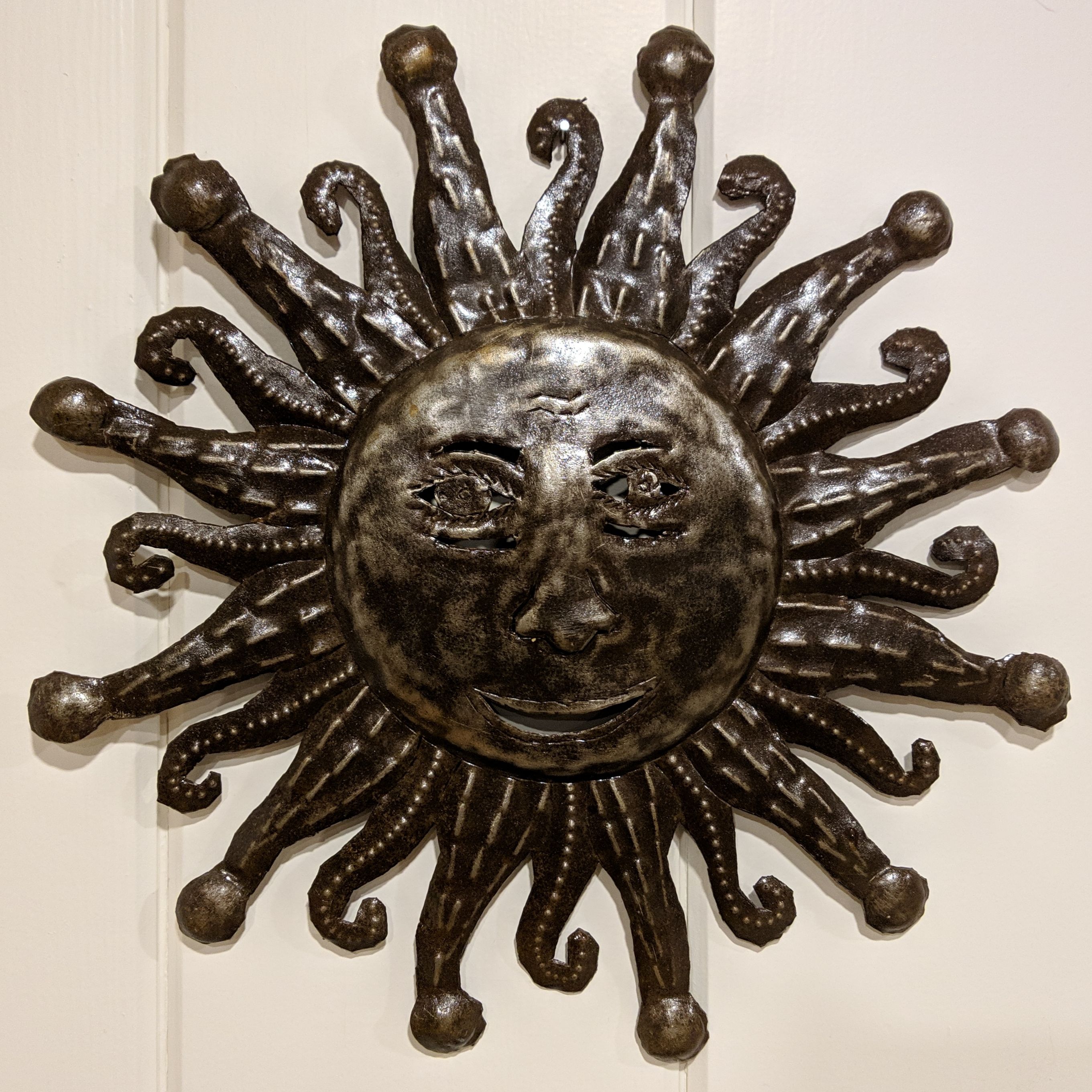One of the biggest issues I’m having trouble getting past with Lemmy is not knowing which communities to subscribe to.
An example, if there are like 10+ different communities for “technology”, do I really have to subscribe to all of them just to get the same experience I would have gotten on /r/technology?
Is there a way to “clump” these communities together so I can just subscribe to one “multi-community” that houses the posts from all of them?
Subscribing to 10 technology communities will likely get you a much, much more vibrant experience than just subbing to r/technology. People actually, you know, discuss things in smaller spaces, rather than just drop drive-by comments that no one will ever read.
Or it’ll get you a dozen dupes of every submission.
As Lemmy grows, communities on certain servers will die out and some will accumulate all the users. I think the problem will die out eventually.
Though, I think there should be some way to migrate users of a community to a new server. Sounds hard to implement but maybe doable.
I’m hoping for two features: Let communities “follow” other communities - so one community’s content also shows up on the other. And let me group communities together on my personal feed, if they don’t want to follow each other for some reason. For now, I stay mostly on the home page, which aggregates everything - but I’d much prefer to be able to browse by topic and still have some aggregation.
Yeah – why can’t individual communities opt-in federate together? That’s a great idea
Ive commented on this before. I call it towns. A town has multiple communites. Its basically a multireddit but work with me here.
Towns are tied to your account on your instance. Its only use is to group communities to be easier to read.
but why not… Lemmons?> l
Also the lemmons should be able to be set for public search for the lemmy admins so if you search ‘tech’ you find the general community lemmons. User lemmons should be visible looking at the user if they’re set to public.
Clearly there’s one problem with “lemmons,” you’d always have to be on the lookout for The Lemmon-Stealing Horse!
top comment
I hope that with future versions of lemmy they can create “lists” that people can subscribe to that will do this.
or at least let you add communities to your own lists that do that.
How is that different from how subscriptions work now, other than adding one more thing to click to get to your “list” to add a subscription?
You could group them and look at everything “outdoors” related from multiple communities in a single feed.
Yeah, that would be cool. Right now we only have 3 options: All, Local, or Subscribed. I’d love a submenu that let me generate an individualized feed based on multiple subscriptions that I grouped together, and also let me name & save these feeds.
You start with a false premise:
An example, if there are like 10+ different communities for “technology”, do I really have to subscribe to all of them just to get the same experience I would have gotten on /r/technology?
r/technology was never the only technology subreddit. There was retro, retrotechnology, who knows perhaps something like bambootechnology, cartechnology, etc. So you never had that experience. You had the same experience you would and do have here, except there it was tinted with a veil of capitalism to keep you submissive. What you are seeing now, is the normal, always has been (insert “always has been” meme). The “big pharmas” of the internet are actually the outlier.
As for the task of “clumping” those communities, I’d surmise in the “content fetching” form that would be the task of a community aggregator, like lemmy itself if eventually a “lists” feature is added, or if communities are allowed to follow each other. Or, if we keep the cross-aggregation separate from the content posting, so that it’s possible to do both or either witout requiring a super VPS, maybe a webring could do it. I remember webrings from the 90s. They were cool.
Think these “fractured” distributed communities are the new normal we need to embrace moving forward. It seems like we’ve been conditioned to think in terms of corporations and monopolies for too long, and maybe, just maybe, a more “splintered” approach could work better.
Why does everything need to fit in one uniform or under one roof? Humanity is diverse, and we have diverse experiences.
It’s about ease of use. If there are two very similar communitites both with decent amount of content that interests you, you want to follow both and you don’t want to think about which is which. You don’t care. You want the content.
Wanting more diverse experiences and perspectives is exactly why its beneficial having large amounts of people concentrated in one community. People want to be able to interact with a large amount of people, in one place where they can get the benefit of the collective knowledge and experience.
I appreciate the alternative opinion and am glad you offered it.
Another user mentioned “communities following communities” which I think could serve as a viable middle ground.
This is like saying “why do libraries have categories, we should just all under one roof.” I shouldn’t have to go to 5 different sections of the library to get self help books
It’s helpful to understand what the rules and values of an instance is to evaluate if a duplicate community is worth subscribing to. There will be dominant communities that shake out. Subscribe to a bunch now and then reevaluate in a month.
What about all of the other technology communities? Forums, Web sites, chat rooms, books, magazines, local clubs? We need a way to clump them all together and subscribe to them all at once.
I see your point, but that’s not really helpful discourse.
I hope some functionality like that will show up purely because I need this question to stop appearing every 3 minutes.
Yes, you’ll subscribe to 10 technology subs. Oh no the humanity.
I, too, am annoyed by this one. It’s like people forgot that reddit had multiple tech subs too, you just picked the biggest one usually. This is no different, just nothing is big yet. Maybe its that last part that bothers people.
I, personally, want things to be decentralized. I want to have 100+ technology communities that are all relevant. But for that to be practical, there needs to be a simple mechanism for people to follow the topic “technology”, and get the content of all these 100+ communities merged together (then perhaps manually block some of them that have bad moderation). Unless we have such mechanism, we’ll end up with one main big technology community, and all others will be secondary.
Mastodon lets you subscribe to hashtags. Misskey/Calckey let’s you create saved searches for termsaand hashtags.
Community tags and either of those options would go a long, long way.
Both also have lists. Being able to add communities to lists would give people the “metacommunities” they think they want.
But honestly, I think people will do better long term if they have to put in even just a little bit of legwork to find the communities with the right fit, and ignore the rest. People have a lot of FOMO around this, but it’s not like anyone read even 1% of anything that was ever posted to big subreddit. They never feared missing out on all of the stuff below the fold.
Making people go scrounging over ten subs is the ideal way to reduce your subscriber base. It’s also a shitty model for a link aggregator and a terrible way for people to ask questions and get answers. Not all of us have ten hours a day to scroll through multiple communities on the same topic, with the same article posted 8 times with 8 different discussion threads and some goober posting the same inane comment on all eight. It’s a waste of time.
There are perfectly good reasons for similar communities with a different focus to co-exist. Making the Fediverse harder and more Byzantine to use is a terrible reason to want it, though.
But honestly, I think people will do better long term if they have to put in even just a little bit of legwork to find the communities with the right fit, and ignore the rest.
That kinda misses the point, though. For me it’s more about promoting decentralization than it’s about whether people’s reasons to want to join all communities on a topic make sense (they actually can for niche topics). Without a feature like that, I fear people will just all join the largest community on the topic and “centralize” it.
Yeah, this is what I’ve been doing, and I expect it’s going to be that way for a while because this is all still so new to so many people
It’s fine, we’ll get used to things in time
I think my biggest frustration is feeling like I am missing communities based on my instance. I have 2 accounts on different instances, 1 I created a few weeks ago and 1 I created a few days ago. On my newer account, I couldn’t find half the communities I was looking for unless I dropped a direct link into the search (looking just for the name didn’t turn anything up). And then when I did finally find them, the subscriber number was different (like 1 community had 100+ subscribers on my first account, but the same community only showed like 2 or 3 subscribers on my second account). Anyway I’m sure user error plays a role in this, but it is not intuitive to me, just yet anyway.
Yea that’s pretty stupid. I don’t see why information about new communities couldn’t be propagated across instances.
Subscriber count is instance-specific I think, which does make some sense but then upvotes are apparently federated so idk
Just subscribe to all of them if you’re that worried about missing something. It’s really not that complicated.
Also, stop worrying about reenacting your Reddit experience. Lemmy is not Reddit. Figure out what you like about Lemmy and focus on enhancing that instead of stressing about forcing Lemmy into your preconceived notion of what it should be.
This is pretty much what I’m doing.
If sub.rehab shows 5 threadiverse alternatives for a subreddit, I’ll have a look at each and often sub to 2-3 with the highest subscriber count/posts I like. I’ll then monitor them over time to see which, if any, to unsub from.
Yeah who cares what the users want /s
Things organically change over time; at some point the clustering you talk about might still happen. Actually network theroy predicts it will happen








